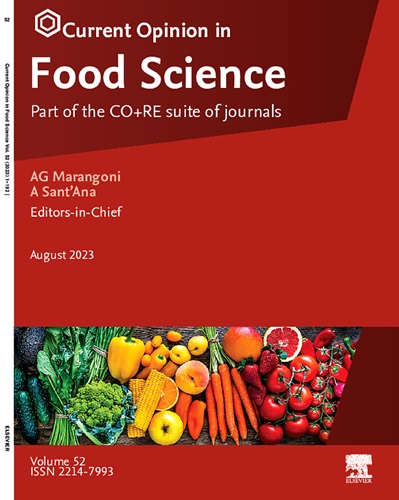食品行业的创意与创新:融合艺术类型学与战略突破
IF 9.1
1区 农林科学
Q1 FOOD SCIENCE & TECHNOLOGY
引用次数: 0
摘要
随着企业面临消费者偏好的转变、可持续发展的要求和技术的颠覆,创造力和创新对食品行业的发展越来越重要。虽然人们对创新的结果给予了相当大的关注,但对创新过程和支撑创新的战略逻辑却知之甚少。本综述通过整合两个有前景的框架,即Galenson的概念和实验创新者类型学以及蓝海战略的价值创新模型,解决了这一差距,为理解创新如何在食品行业出现和成功提供了一个结构化的视角。根据最近的经验和概念工作,特别是在葡萄酒和美食方面,本文强调了不同的创意风格如何与不同的战略差异化和市场创造路径相结合。这些观点的整合提供了超越静态分类的创新的动态描述,强调时间、可复制性和价值逻辑。该综述最后确定了文献中的关键空白,并概述了未来食品价值链研究的有希望的途径。本文章由计算机程序翻译,如有差异,请以英文原文为准。
Creativity and innovation in the food industry: integrating artistic typologies and strategic breakthroughs
Creativity and innovation are increasingly central to the evolution of the food industry, as firms confront shifting consumer preferences, sustainability imperatives, and technological disruption. While considerable attention has been paid to the outcomes of innovation, less is known about the creative processes and strategic logics that underpin them. This review addresses that gap by integrating two promising frameworks, Galenson’s typology of conceptual and experimental innovators, and Blue Ocean Strategy’s value innovation model, to provide a structured lens for understanding how innovations emerge and succeed in the food sector. Drawing on recent empirical and conceptual work, particularly in wine and gastronomy, the paper highlights how different creative styles align with distinct paths of strategic differentiation and market creation. The integration of these perspectives offers a dynamic account of innovation that moves beyond static classifications, emphasizing timing, replicability, and value logic. The review concludes by identifying key gaps in the literature and outlining promising avenues for future research across the food value chain.
求助全文
通过发布文献求助,成功后即可免费获取论文全文。
去求助
来源期刊

Current Opinion in Food Science
Agricultural and Biological Sciences-Food Science
CiteScore
18.40
自引率
4.00%
发文量
157
审稿时长
92 days
期刊介绍:
Current Opinion in Food Science specifically provides expert views on current advances in food science in a clear and readable format. It also evaluates the most noteworthy papers from original publications, annotated by experts.
Key Features:
Expert Views on Current Advances: Clear and readable insights from experts in the field regarding current advances in food science.
Evaluation of Noteworthy Papers: Annotated evaluations of the most interesting papers from the extensive array of original publications.
Themed Sections: The subject of food science is divided into themed sections, each reviewed once a year.
 求助内容:
求助内容: 应助结果提醒方式:
应助结果提醒方式:


